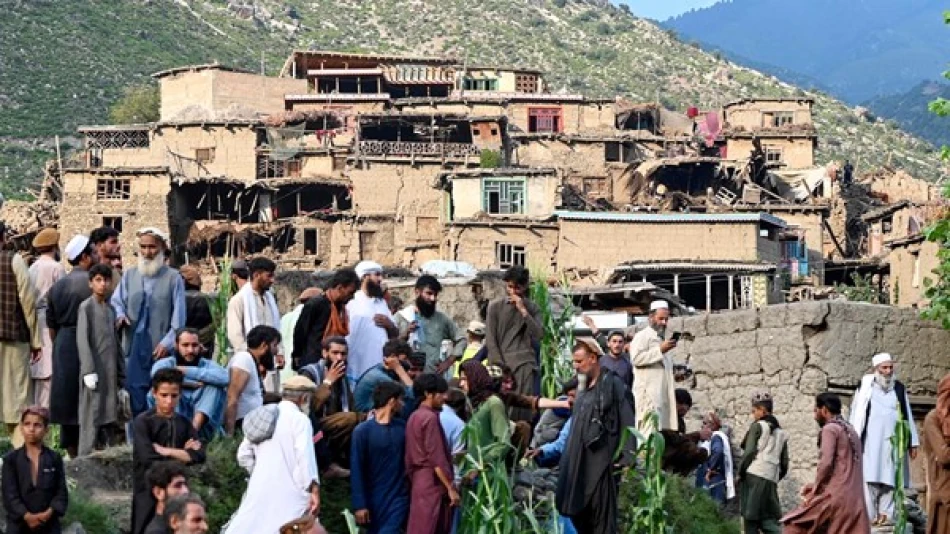
European Union Pledges €1 Million in Earthquake Relief for Afghanistan's Victims
EU Mobilizes €1 Million Emergency Aid Package as Afghanistan Faces Compounding Humanitarian Crisis
The European Union announced a comprehensive emergency response worth €1.16 million ($1.16 million) plus 130 tons of relief supplies for Afghanistan following a devastating earthquake that killed at least 900 people last Sunday. The disaster strikes a nation already grappling with economic collapse and a massive influx of returnees from Pakistan, highlighting how natural disasters can amplify existing humanitarian emergencies in fragile states.
Swift International Response to Natural Disaster
The European Commission confirmed Tuesday that the emergency funding will flow directly to humanitarian partners already conducting relief operations on the ground. This approach reflects lessons learned from previous disaster responses, where channeling aid through established networks proves more effective than creating new distribution mechanisms during crisis periods.
The 130-ton relief shipment heading to Kabul includes essential survival items: emergency shelters, clothing, medical equipment, and water purification systems. These supplies address immediate post-earthquake needs while supporting longer-term recovery efforts in affected regions.
Crisis Upon Crisis: Afghanistan's Compounding Challenges
EU Crisis Management Commissioner Janez Lenarčič emphasized that this latest earthquake places additional strain on Afghanistan's already deteriorating humanitarian situation. The timing proves particularly challenging, as affected regions have recently absorbed large numbers of Afghan refugees returning from Pakistan.
This refugee influx, triggered by Pakistan's deportation policies in recent months, has stretched local resources thin. Communities now face the dual burden of supporting returnees while managing earthquake recovery—a scenario that typically overwhelms local infrastructure and social services.
Strategic Implications for International Aid
The EU's rapid response demonstrates how international donors navigate the complex challenge of providing humanitarian assistance in Taliban-controlled Afghanistan. Since the Taliban's return to power in 2021, Western nations have maintained humanitarian aid while suspending development assistance and freezing government assets.
This earthquake response follows a pattern established by other major donors, including the United States and United Nations agencies, of working through international humanitarian organizations rather than directly with Afghan authorities. Such arrangements allow continued assistance to Afghan civilians while maintaining political distance from the Taliban government.
Broader Context of Regional Instability
Afghanistan's humanitarian crisis extends beyond natural disasters to encompass economic collapse, food insecurity affecting millions, and restricted rights—particularly for women and girls. The earthquake compounds these challenges in a nation where international isolation has severely limited recovery capacity.
The situation mirrors other fragile states where natural disasters intersect with political instability, such as Haiti following recent earthquakes or Syria during ongoing conflict. In such contexts, international humanitarian response becomes critical for preventing localized disasters from escalating into broader regional crises.
The EU's measured but substantial response signals continued international commitment to Afghan civilians despite political disagreements with the country's leadership—a delicate balance that defines much of the current international approach to Afghanistan's ongoing humanitarian emergency.
Most Viewed News

 Layla Al Mansoori
Layla Al Mansoori






